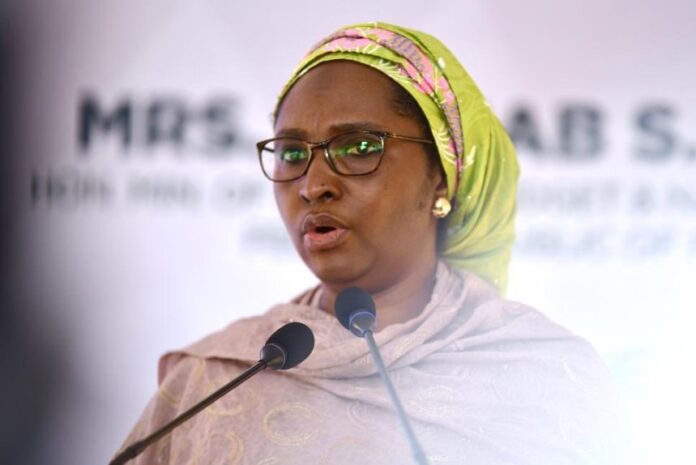Mrs Zainab Ahmed, Minister of Finance, Budget and National Planning, has inaugurated a 17-member National Steering Committee for the States Fiscal Transparency, Accountability and Sustainability (SFTAS) Programme-For-Results.
The minister inaugurated the committee in Abuja, charging members to consider the assignment as a call to national duty and ensure results were achieved within specified timelines.
Giving a history of the programme, Ahmed said it was introduced by the Federal Government in 2017 in collaboration with the World Bank to strengthen fiscal transparency, accountability and sustainability in the states.
“It is financed with the loan of 750 million dollars from the World Bank to support the states through the provision of performance-based grants for which 700 million dollars has been earmarked.
“The balance of 50 million dollars is for financing of technical assistance to enable the states achieve specified Disbursement Linked Indicators (DLIs) toward qualification for the grants.”
According to her, the DLIs are derived from the already established 22-point Fiscal Sustainability Plan (FSP) by the Federal Government and the Open Government Partnership (OGP) commitments.
She said it was aimed at strengthening the desired fiscal reforms at the sub-national levels, while participation in the programme was open to all states including the Federal Capital Territory (FCT).
Ahmed said that the committee’s responsibility was to review the status of disbursements to states and review the progress in the implementation of the programme.
It would also review the status of delivery of the capacity building programme across the states by implementing agencies and partners.
Mr Aliyu Ahmed, Permanent Secretary, Special Duties at the ministry, said that strengthened fiscal transparency would help build trust in government and enhance the monitoring of fiscal risks.
He added that it would also facilitate accountability in public resource management.
“In the same vein, a stronger accountability will significantly reduce the opportunities and incentive for corruption and abuse of public resources, thereby increasing the efficiency of public expenditures.”
Ahmed added that the level of achievement of the DLIs by a state determines the amount of grant to be disbursed to it.
Miss Yue Man Lee, Team Leader of SFTAS from the World Bank said it was the organisation’s largest state level programme, covering all 36 states.
She said that apart from benefitting and supporting the states, it was aimed at strengthening federal and states fiscal policy coordination.
Lee added that it would hopefully help to reduce the fiscal risks in difficult economic times by supporting states to implement the FSP.
“We hope that the states will take the opportunity through SFTAS to really strengthen their Public Finance Management (PFM) systems so that they will be self sustained beyond SFTAS.
“SFTAS has built on several projects that the bank has done at the state levels that provided the foundation for us to do a programme focused on results.
“We hope that SFTAS will serve as a model for future world bank engagements to the states.”
According to Lee, for the first year of the programme, 24 states met their eligibility criteria and participated in the programme.
She added that based on preliminary assessments, in the second year of the programme, 33 states would be participating.
The SFTAS team leader, however, said that the committee had a critical role in ensuring the success of the programme by providing strategic guidance and oversight.
“This should start with looking at the successes and learnings from the first annual performance assessment of the states by the Office of the Auditor-General as the independent verification agent,” she said.
Also speaking, Mr Anthony Ayine, the Auditor-General of the Federation (AuGF), who spoke on behalf of the committee, said fiscal discipline and accountability at the sub-national level was very important for the country.
“For us as the committee, we should look beyond the period of this programme and I want to appeal to the participating states for their cooperation and for us even beyond the programme to institutionalise the concept of the programme.
“If we can go beyond the grants that is to be given as reward for the result and the concept is sustained beyond the programme period, it will be a good thing.”
He, however, assured that the committee would put in everything to ensure the success of the programme.
Mr Mahmoud Isa-Dutse, Permanent Secretary, Ministry of Finance is the chairman of the committee, while members include Ms. Patience Oniha, Director-General, Debt Management Office (DMO) and Mr Yemi Kale, Statistician-General.
Others are Dr Mohammed Tumala, Director, Statistics Department, Central Bank of Nigeria (CBN) and Dr Abdul-Ganiyu Obatoyinbo, Administrator, Public Service Institute among others.




